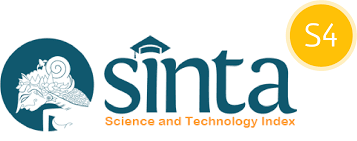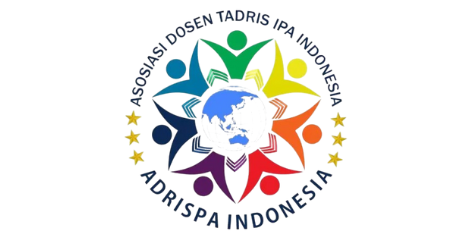Technological Pedagogical Content Knowledge Mahasiswa Calon Guru Biologi Dalam Menyusun Perangkat Evaluasi Pembelajaran
DOI:
https://doi.org/10.35719/vektor.v1i2.13Keywords:
knowledge skills in technology pedagogical content, learning evaluation devices, teacher candidatesAbstract
Guru merupakan figur sentral dalam penyelenggaraan pendidikan. Dalam proses pembelajaran guru tidak hanya melakukan transfer ilmu tetapi harus memiliki kuaifikasi akademik yang sesuai bidang, kompetensi teknologi, pedagogik, personal, dan persyaratan profesionalitas yang mumpuni. Penelitian ini bertujuan untuk mengetahui kemampuan Technological Pedagogical Content Knowledge (TPCK) mahasiswa calon guru Pendidikan Biologi UIN Raden Intan Lampung dalam menyusun perangkat evaluasi pembelajaran. Jenis penelitian ini adalah kuantitatif dengan metode analisis korelasi. Penentuan partisipan dalam penelitian ini dilakukan dengan teknik purposive sampling yaitu mahasiswa pendidikan biologi angkatan 2016 semester 8 yang sudah menyelesaikan materi pedagogik. Teknik pengumpulan data menggunakan angket, lembar obseravasi, wawancara dan dokumentasi. Uji hipotesis pada penelitian ini menggunakan uji korelasi Product Moment. Hasil analisis korelasi memperoleh nilai koefisien korelasi sebesar 0,585 yang mneunjukan hubungan antara dua vriabel tersebut cukup kuat dan arah hubungan menunjukan arah positif, maka Ho ditolak dan Ha diterima artinya terdapat hubungan yang positif antara kemampuan Technological Pedagogical Content Knowledge (TPCK) dengan kemampuan membuat perangkat Evaluasi Pembelajaran pada mahasiswa.
Kata Kunci: calon guru, kemampuan technological pedagogical content knowledge, perangkat evaluasi pembelajaran
The teacher is a central figure in the administration of education. In the learning process the teacher does not only transfer knowledge but must have academic qualifications in accordance with the fields, technological competence, pedagogic, personal, and qualified professional requirements. This study aims to determine the ability of Technological Pedagogical Content Knowledge (TPCK) for prospective teachers of Biology Education at UIN Raden Intan Lampung in developing learning evaluation tools. This type of research is quantitative with correlation analysis method. Determination of participants in this study was conducted with a purposive sampling technique, namely biology education students for semester 8 2016 who had completed pedagogic material. Data collection techniques using questionnaires, observation sheets, interviews and documentation. Hypothesis testing in this study uses the Product Moment correlation test. Correlation analysis results obtained a correlation coefficient of 0.585 which shows the relationship between the two variables is quite strong and the direction of the relationship shows a positive direction, then Ho is rejected and Ha is accepted, meaning there is a positive relationship between the ability of Technological Pedagogical Content Knowledge (TPCK) with the ability to make evaluation tools Student learning.
Keywords: knowledge skills in technology pedagogical content, learning evaluation devices, teacher candidates
Downloads
Published
How to Cite
Issue
Section
License
Copyright (c) 2020 VEKTOR: Jurnal Pendidikan IPA

This work is licensed under a Creative Commons Attribution-ShareAlike 4.0 International License.
Authors who publish with this journal agree to the following terms:
- Authors retain copyright and grant the journal right of first publication with the work simultaneously licensed under the terms of the CC BY-SA 4.0 License that allows others to share the work with an acknowledgment of the work's authorship and initial publication in this journal.
- Authors are able to enter into separate, additional contractual arrangements for the non-exclusive distribution of the journal's published version of the work (e.g., post it to an institutional repository or publish it in a book), with an acknowledgment of its initial publication in this journal.
- Authors are permitted and encouraged to post their work online (e.g., in institutional repositories or on their website) prior to and during the submission process, as it can lead to productive exchanges, as well as earlier and greater citation of published work.







